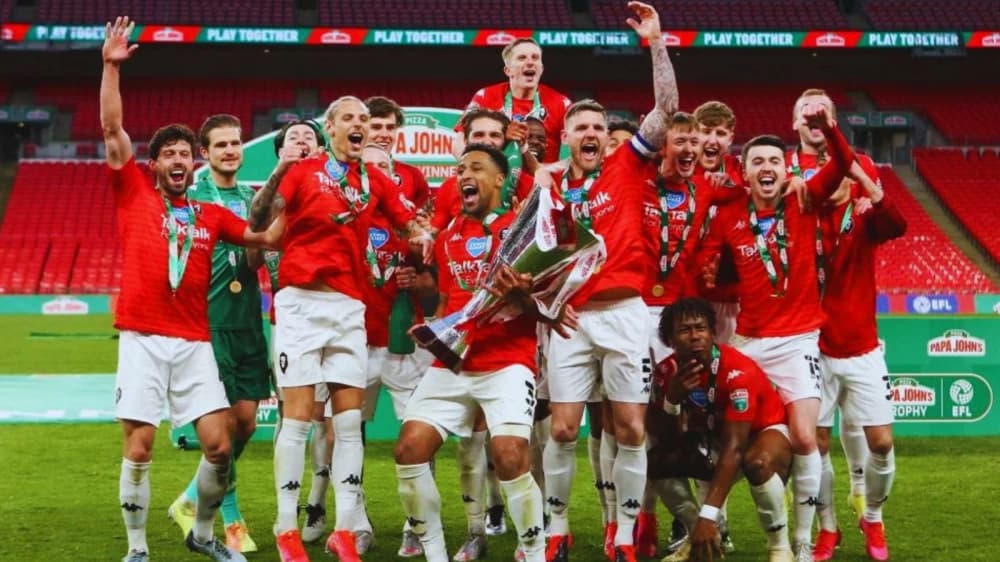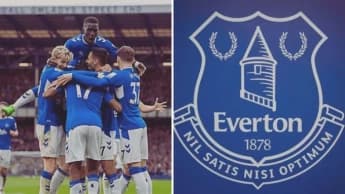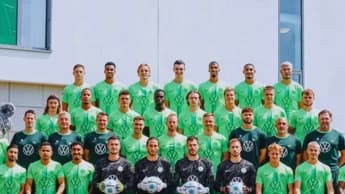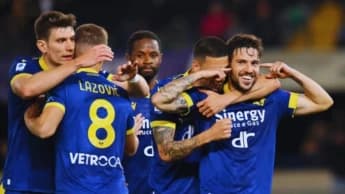Salford City Football Club has transformed from its humble beginnings to a prominent force in English football, driven by ambition, celebrity ownership, and community support.
Salford City Football Club is a professional football team located in Salford, Greater Manchester, England. The club, originally established in 1940 as Salford Central, has had an impressive journey through the different levels of English football. Currently, Salford City plays in EFL League Two, which is the fourth tier of the English football league system. The club is notably recognized for its prominent ownership, with former Manchester United players—Gary Neville, Phil Neville, Paul Scholes, Ryan Giggs, Nicky Butt—and businessman Peter Lim among its stakeholders. This ownership has greatly enhanced the club's visibility and status in recent years.
Initially founded as Salford Central, the club spent most of its early years playing in local and regional leagues. In 1963, it changed its name to Salford Amateurs and became part of the Manchester League. The club went on to be a founding member of the North West Counties Football League in 1982. In 1989, it took on the name 'Salford City' to reflect its ambitions for a more significant role in the national football structure.
For many years, Salford City lingered in the lower tiers of the English football hierarchy. However, in 2014, the club’s fortunes began to change significantly when the 'Class of '92'—a collective of former youth players from Manchester United—took a controlling stake in the club. This signified the start of a new phase of professionalism and ambition for Salford City. The participation of these ex-United legends not only infused the club with investment but also attracted media attention, provided strategic direction, and established an ambitious vision for the future.
After the takeover, the club embarked on a clear goal: to join the English Football League. With the new ownership, Salford City quickly advanced through the divisions. In the 2014–15 season, they clinched the Northern Premier League Division One North title. This was followed by another promotion in the 2015–16 season via the playoffs from the Northern Premier League Premier Division. In the 2017–18 season, Salford claimed the National League North title, marking their third promotion in four years.
The upward trend continued as Salford City achieved promotion to the National League for the 2018–19 season. The club's journey reached a defining moment when they triumphed over AFC Fylde with a score of 3–0 in the 2019 National League play-off final held at Wembley Stadium. This victory secured their promotion to the English Football League for the very first time in the club's history. The 2019–20 season marked Salford City’s initial appearance in League Two, representing a significant achievement for a team that had only recently been competing in lower divisions.
The ascent of Salford City has involved more than just achievements on the pitch. The club has made significant investments in its infrastructure. Moor Lane, the club's historic ground, underwent an extensive redevelopment and was renamed the Peninsula Stadium after a sponsorship agreement. With upgraded facilities and a larger seating capacity, the stadium symbolizes the club's ambitions to become a sustainable member of the EFL.
Despite their rapid rise, Salford City has encountered criticism and scrutiny, especially concerning the financial support and influence of their well-known owners. Concerns have been voiced about fairness and sustainability in lower league football. Nonetheless, the club is dedicated to advancing within the football pyramid and continuing its development, with long-term objectives that include reaching the Championship.
Salford City F.C. embodies a contemporary football narrative—where history, ambition, celebrity impact, and financial strength intersect. As the club continues to shape its identity within the EFL, it presents a distinctive and captivating presence in English football.
Historical Background
Salford City Football Club was established in 1940, originally known as Salford Central. In its formative years, the club participated in local leagues throughout Greater Manchester. The name was changed to Salford Amateurs in 1963, and the club continued to compete at the amateur level. During this time, the team built a strong reputation in regional football and became known as 'The Ammies.' In 1980, the club joined the Cheshire County League and later became a founding member of the North West Counties Football League in 1982.
In 1989, the club underwent a name change, becoming Salford City Football Club. This transformation signified a goal to move beyond its amateur beginnings and create a more distinguished identity. Salford City spent the majority of the 1990s and early 2000s competing in the North West Counties League, facing numerous mid-table positions and challenges both on and off the field. In 2008, the club achieved promotion to Division One North of the Northern Premier League.
The revitalization of Salford City started in 2014 when former Manchester United players Gary Neville, Phil Neville, Paul Scholes, Ryan Giggs, and Nicky Butt—known as the 'Class of '92'—purchased a 50% interest in the club. Singaporean entrepreneur Peter Lim subsequently became their co-owner. The new ownership outlined an ambitious strategy to elevate Salford City into the Football League, with aspirations for promotion to the Championship within 15 years.
With the new ownership, the club experienced a swift ascent through the football hierarchy. During the 2014–15 season, Salford City clinched the Northern Premier League Division One North title, which led to their promotion to the Northern Premier League Premier Division. They continued their success by securing a playoff victory in the 2015–16 season, resulting in promotion to the National League North.
Salford City continued their positive momentum during the 2017–18 season by winning the National League North title, which led to their promotion to the National League. In their first season in the National League in 2018–19, Salford finished in third place and advanced to the playoff final. They achieved a 3–0 victory over AFC Fylde at Wembley Stadium, marking the club's inaugural promotion to the English Football League (EFL).
Salford City joined League Two for the 2019–20 season and has remained there since then. Their inaugural season in the EFL was disrupted by the COVID-19 pandemic, which resulted in the premature ending of the season. The club ended the season in mid-table and, despite notable performances in cup competitions—including clinching the 2019–20 EFL Trophy (with the final postponed to 2021 due to the pandemic)—they fell short of making it into the playoff positions.
The club's home ground, Moor Lane, underwent substantial redevelopment during this time. It was renamed the Peninsula Stadium due to a sponsorship agreement, and the capacity was increased to over 5,000. The modernization of the stadium aligned with the aspirations of the club's ownership and provided facilities that met Football League standards.
During the subsequent seasons, Salford City maintained their pursuit of promotion to League One, with several managerial changes highlighting their ambition for rapid advancement. Managers including Graham Alexander, Richie Wellens, and Gary Bowyer were hired and later parted ways with the club as they searched for the right approach to achieve success.
Salford City has consistently focused on enhancing its infrastructure, strengthening its playing squad, and fostering youth development. The club retains significant visibility, attributed to the prominence of its owners and their affiliation with Manchester United. The transformation of Salford City from a local amateur team to a professional Football League club in under ten years is regarded as one of the most extraordinary tales in the recent history of English football.
Infrastructure and Player Development
Salford City Football Club has experienced considerable changes in its infrastructure and player development, especially since the takeover by the Class of '92 and businessman Peter Lim in 2014. A key transformation has been the redevelopment of the club's home ground, Moor Lane, which was renamed the Peninsula Stadium following a sponsorship deal. Originally a modest non-league facility, Moor Lane underwent significant modernization to comply with Football League requirements and support the club's swift ascent through the English football hierarchy.
The refurbishment of the stadium involved the construction of four new covered stands that offer both seating and standing areas. This enhancement increased the stadium's capacity to over 5,000, which includes more than 2,200 seats. These upgrades have improved facilities for both home and away fans, contributing to a more professional matchday experience. The venue now boasts upgraded changing rooms, media facilities, hospitality suites, and enhanced accessibility, showcasing the club’s aspirations and dedication to long-term development.
In addition to redeveloping the stadium, the club has strategically invested in training facilities. Salford City has established a dedicated training center to provide the first team and development squads with access to modern training equipment and pitches. These facilities play a vital role in upholding the physical and tactical standards necessary for competing at the professional level within the English Football League. The club aims to create an environment that supports player fitness, recovery, and performance analysis.
A fundamental aspect of Salford City's vision is the creation and enhancement of a strong player development pathway. The club has dedicated resources to its academy system, with the aim of cultivating homegrown talent that can advance to the first team. Salford City Academy focuses on identifying and supporting young players from the Greater Manchester region and beyond. By offering organized coaching, education, and development programs, the academy equips players with the necessary skills to pursue careers in professional football.
The development program combines football training with educational support, ensuring that young athletes receive academic assistance as they pursue their sporting goals. This twofold strategy aims to provide stability and essential life skills, even for those who may not advance into professional football. The academy's staff consists of certified coaches and mentors dedicated to the technical and psychological growth of young players.
Salford City is committed to a player development strategy that aligns with the club’s long-term goals. By nurturing talent internally, the club aims to strike a balance between investing in external signings and fostering future stars from within its own system. The involvement of prominent owners with distinguished football backgrounds has significantly shaped the club's developmental ethos, underscoring the importance of professionalism, discipline, and ambition.
Alongside its youth academy, the club has formed connections with local grassroots clubs and schools to discover and recruit promising young players. These collaborations aid in early talent identification and enhance the club's engagement with the local community. Development teams and age-specific squads participate in competitive matches at various levels, ensuring that athletes accumulate match experience in addition to their training sessions.
The welfare of players is a crucial priority for Salford City. The club provides comprehensive medical, nutritional, and psychological support to its athletes. Training programs incorporate sports science and performance analysis, utilizing data to track player performance, fitness levels, and injury prevention strategies. This infrastructure is aimed at supporting both senior and academy players, highlighting the club's professional commitment to all aspects of player development.
Salford City’s strategy for infrastructure and player development is focused on sustainability, growth, and competitiveness. As the club aims for promotion to higher levels of English football, the groundwork established in infrastructure and youth development is regarded as crucial for its long-term success. The club's initiatives in this area highlight its evolution from a non-league team to an ambitious Football League organization with a defined vision for the future.
Team Accomplishments
Salford City Football Club has enjoyed an impressive ascent through the English football hierarchy, achieving numerous important milestones, especially over the last decade. The club has transitioned from a non-league team to a Football League contender, highlighted by several league titles, playoff victories, and a significant win in a domestic cup.
A significant early accomplishment took place during the 2007–08 season when Salford City clinched the North West Counties Football League Division One title. This victory led to the club's promotion to the Premier Division, representing a crucial advancement in their competitive journey. The subsequent years were dedicated to stabilizing and steadily enhancing their performance within the Northern Premier League framework.
A significant transformation for Salford City commenced in 2014 when members of Manchester United’s legendary Class of '92 and businessman Peter Lim took control of the club. The consequences of this new ownership were immediate and substantial, resulting in a series of promotions and achievements on the field. During the 2014–15 season, Salford City clinched the Northern Premier League Division One North title. This victory was crucial, marking a turning point for the club’s progress under the new leadership.
The 2015–16 season marked another successful chapter for Salford City as they reached the playoffs in the Northern Premier League Premier Division. Following a challenging campaign, the club achieved promotion to the National League North, securing back-to-back promotions for the first time in its history. These successive accomplishments highlighted the effectiveness of the club's strategic planning and the strength of its squad.
The momentum carried on into the 2017–18 season when Salford City claimed the title of champions in the National League North. Winning the championship secured automatic promotion to the National League, positioning the club just one step away from the English Football League. This achievement marked a significant milestone, solidifying Salford City's reputation as a formidable competitor in the upper levels of non-league football and demonstrating the ongoing development achieved under the guidance of the club's prominent owners.
The 2018–19 season is widely regarded as the most significant milestone in Salford City’s history. Finishing third in the National League allowed the club to participate in the promotion playoffs. Salford City triumphed over Eastleigh in the semi-finals and subsequently achieved a decisive 3–0 victory against AFC Fylde in the National League play-off final held at Wembley Stadium. This victory marked Salford City's promotion to the English Football League for the very first time, a remarkable feat that symbolizes the club's journey from the lower tiers of non-league football to the professional landscape of the EFL.
Alongside their achievements in the league, Salford City has also made a significant impact in cup competitions. The club's most notable cup victory occurred during the 2019–20 season when they clinched the EFL Trophy, previously known as the Football League Trophy. Although the final was postponed due to the COVID-19 pandemic, it eventually took place at Wembley Stadium in March 2021. Salford City faced Portsmouth and triumphed in a penalty shootout following a goalless draw. This victory marked the club's first major domestic cup trophy and highlighted their competitiveness at the professional level.
During their tenure in League Two, Salford City has consistently pursued promotion to League One, often finishing near the playoff spots. Although they have not yet secured another promotion, they have maintained a solid position in the division, frequently competing in the top half of the table. Their performances demonstrate a clear ambition and a commitment to competing at higher levels.
The achievements of Salford City’s team highlight their rapid growth, fueled by effective leadership, strategic investments, and a clear footballing philosophy. From their beginnings in local leagues to winning a trophy at Wembley and competing in the Football League, the club has built an impressive collection of honors and milestones in a relatively brief time. These successes lay the groundwork for Salford City’s ambitions for future achievements and ongoing advancement within the English football hierarchy.
Rivalries and Significant Matches
Salford City Football Club, in its ascent from local leagues to the English Football League, has forged various rivalries and engaged in numerous significant matches that have contributed to its identity. These rivalries and encounters have not only shaped the club's competitive path but have also created pivotal moments in its history.
One of the most prominent rivalries for Salford City is with FC United of Manchester. This rivalry is based on their geographical closeness and differing philosophies. FC United was established in 2005 by supporters of Manchester United as a protest against the Glazer family's ownership of the club, while Salford City is jointly owned by former Manchester United players. When these two teams faced off in the Northern Premier League, the matches drew considerable attention due to the stories surrounding ownership, ambition, and fan culture. The rivalry intensified during the 2015–16 season, especially in matches with promotion stakes, leading to large crowds and fervent support during their encounters.
A notable regional rivalry exists between Salford City and Stockport County. Despite Stockport having spent the majority of their history in higher divisions, Salford's resurgence and rise through the leagues have led to direct competition between the two. Matches played between these teams in the National League North and National League were fiercely contested. The close geographical proximity of the clubs, combined with both teams' ambitions to advance to the Football League, has heightened the rivalry, creating a competitive atmosphere in every match.
Rivalries have also emerged with other clubs in Greater Manchester, such as Oldham Athletic and Rochdale, particularly after Salford City's promotion to League Two. These matches, commonly known as local derbies, hold extra significance because of their regional backdrop and the quest for local pride. Games against these teams are closely monitored by fans and are often among the most eagerly awaited of the season.
Apart from their rivalries, Salford City’s history features several pivotal matches that have shaped their journey. A particularly notable match took place in November 2015, when they faced Notts County in the first round of the FA Cup. This match was broadcast live on national television, and Salford City, who were then playing in the non-league, triumphed over League Two side Notts County with a score of 2–0. Goals from Danny Webber and Richie Allen secured their victory, granting Salford passage to the second round of the FA Cup for the first time. This win marked a significant milestone, highlighting the club’s potential and attracting national attention.
A significant milestone occurred on April 21, 2018, when Salford City triumphed over Harrogate Town with a score of 2–1 in the National League North. This win clinched the National League North title for Salford and confirmed their promotion to the National League. The match was the highlight of an impressive season and showcased the club's increasing prowess in non-league football. The celebrations that followed emphasized the significance of this achievement in the club’s history.
One of the most memorable matches in Salford City’s history took place on 11 May 2019, during the National League play-off final at Wembley Stadium. In this match against AFC Fylde, Salford displayed a commanding performance, winning with a score of 3–0. Goals from Emmanuel Dieseruvwe, Carl Piergianni, and Ibou Touray contributed to a decisive victory and, crucially, secured Salford City's promotion to the English Football League for the first time. This match marked the achievement of a significant goal set by the club’s owners and was a landmark moment in the club's recent history.
In cup competitions, a notable match was the EFL Trophy final of the 2019–20 season, which eventually took place in March 2021 due to the COVID-19 pandemic. Salford City competed against Portsmouth at Wembley Stadium. After a goalless draw in both regular and extra time, Salford emerged victorious with a 4–2 win in the penalty shootout. Winning the EFL Trophy represented a significant achievement, as it marked Salford City’s first major domestic cup victory and solidified their reputation as a competitive force within the Football League.
In League Two, Salford City has participated in several significant matches as they strive for promotion to League One. Close contests against clubs like Tranmere Rovers, Bradford City, and Mansfield Town have proven to be critical challenges. These games frequently carry playoff implications and are regarded as highly important by both the team and its fans. The competitive environment of League Two guarantees that Salford consistently encounters tough opponents, with every match presenting a chance to advance toward their long-term aspirations.
The rivalries and significant matches of Salford City are an integral aspect of the club’s identity. From regional derbies to surprising cup victories and historic finals at Wembley, these events have contributed to the narrative of a club on the ascent. As Salford City progresses in the English Football League, upcoming rivalries and crucial matches will no doubt play a vital role in shaping the next chapters of the club’s developing story.
Supporters, Community, and Team Anthems
The fanbase of Salford City Football Club has expanded in both size and commitment as the club has climbed the ranks of English football. Once a small non-league team with a limited following, Salford City's advancement through the divisions—especially after the Class of '92 takeover—has greatly boosted local interest and garnered national attention. Support from the local community in Salford and Greater Manchester has been essential in propelling the club's progress through the leagues.
In the past, the club’s main supporters primarily came from the surrounding area, highlighting the grassroots aspect of its formative years. As the team played in regional leagues like the North West Counties League and the Northern Premier League, attendance levels were generally low but steady, with a dedicated fan base providing unwavering support during both highs and lows. This core group constituted the foundation of the fan community and upheld a strong bond with the club's identity and traditions.
Since 2014, the club has undergone significant transformation, fueled by increased investments and a focus on professionalization, leading to a notable rise in attendance and a wider appeal among fans. The renovation of Moor Lane into the modern Peninsula Stadium enabled the club to accommodate larger crowds and enhance facilities for supporters. With a capacity exceeding 5,000, the upgraded stadium fostered a more dynamic matchday experience, drawing in families, young fans, and newcomers from the surrounding area.
The club's visibility increased significantly due to various media appearances, including a notable documentary series by the BBC that showcased its journey under its notable owners. This media attention attracted new supporters from beyond the local Salford community, with many being fans drawn in by the participation of well-known former Manchester United players. Despite this uptick in popularity, the club has remained committed to preserving its identity and maintaining a close bond with its traditional supporters, working to balance its ambitions with its community roots.
Community engagement is a fundamental aspect of Salford City’s philosophy. The club has dedicated resources to various outreach programs designed to build strong connections with local residents, schools, and grassroots organizations. Through initiatives like coaching clinics, school visits, and inclusive football sessions, the club aims to utilize football as a means for social advancement. Salford City prioritizes inclusivity, providing opportunities for individuals of all ages, abilities, and backgrounds to participate in the sport and the club.
The Salford City Foundation takes a prominent role in implementing these community programs. Its initiatives focus on health and well-being, education, employment support, and physical activity, contributing to a positive impact in the community beyond just football. By collaborating closely with local authorities and partner organizations, the club ensures that its community efforts are meaningful and sustainable. These initiatives have improved the club’s reputation in the local area and strengthened its position as a cherished component of the community framework.
Over the years, fan culture at Salford City has transformed significantly. Increased attendance and the club's entrance into the Football League have fostered a more varied fanbase, including long-time supporters, families, and newer fans drawn in by the club’s advancement. On matchdays, the atmosphere is filled with enthusiasm and support, as chants and cheers resonate throughout the Peninsula Stadium. The stadium’s intimate setting enhances the bond between players and fans, with many supporters enjoying direct involvement in club events and activities.
While Salford City may not have an officially recognized club anthem like many traditional teams, the fans have created their own chants and songs over the years. These anthems resonate with the club’s identity, its progress through the leagues, and the pride of the Salford community. Supporters have written unique lyrics and melodies, sung during matches to encourage the team and foster a sense of unity among fans. These songs have become a vital part of the matchday experience, showcasing the creativity and enthusiasm of the club's supporters.
Besides the chants crafted by supporters, the involvement of club legends in the ownership has enriched the culture and spirit surrounding Salford City. The participation of former players like Gary Neville, Paul Scholes, Ryan Giggs, and others has fostered a distinctive link between the club's identity and its aspirations. Although they have not established any formal anthems or musical customs, their presence brings an inspirational touch and has significantly bolstered support on both local and national levels.
Supporter groups have also been instrumental in enhancing the matchday atmosphere. They organize various events, travel for away games, and engage in fundraising activities, all of which contribute to a strong sense of community among fans. Their participation in club forums and community meetings ensures that supporters have a say in the club's direction, fostering better communication between fans and management.







